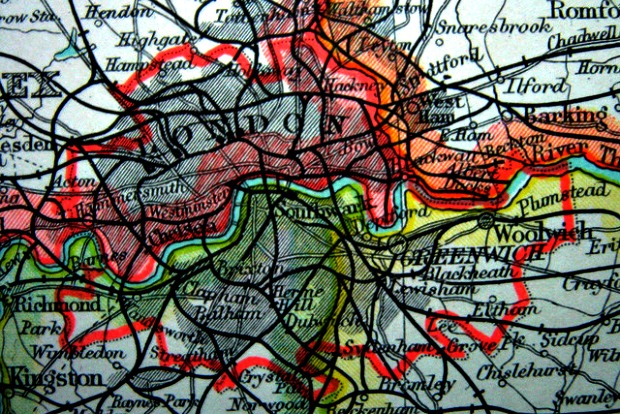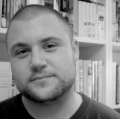You have no items in your cart. Want to get some nice things?
Go shopping
Mum and dad came of age in this part of town. Somewhere in this postcode they drank in pubs and smoked cheap cigarettes, listened to soul, pub rock and a ton of reggae. Today I sweat in a September sun and examine the piles of rubbish accumulating by a buckled-in fence. Bleached Lucozade bottles, crumpled cans of Zubr lager and a carpet of crisp packets. A few pigeons the colour of exhaust fumes peck around in the dirt.
Do you think we’re going the right way? asks John. He holds an A-Z with a broken spine. The traffic on Wembley High Road is grid locked and the air is filthy.
*
They left the city with me just a toddler, splitting in a mundanely acrimonious way a few years later. So though my very early days were within the sight of that stadium, its twin towers demolished over a decade back, then replaced somehow by itself, I grew up by the English Channel. My life was shingle and blue waters, not the North Circular, Neasden temple or Harlesden Jubilee Clock. I spent my teens and university years along the coast in Brighton, dabbling with vegetarianism, armed with blue Rizla and a duty-free pouch of tobacco, haunting the cafes and crowded pubs, punching my fist in the air at local benefit gigs. I never knew the capital that well. Then I met John, counter-intuitively commuting from London down to the sea (part of the job, for a while), and through him, in my late-twenties I ended up being hauled up the train tracks into that city that existed more as a composite of my parents’ memories than anywhere really real. I extricated myself from my coastal life, but mum still lived there and still does, and for a while it felt we had a foot in two camps, with the benefits of two worlds. Social lives in two cities. But inevitably I got trapped in the currents of the city, and finding the time became harder and harder and eventually, I suppose, I became a Londoner. Even then, though, I was on the wrong side of the metropolis. My parents’ stories of their time together, when they were so impossibly young, still captivated me. In my head I carried a map found in no A-Z, a kind of archipelago of hotspots that existed as names alone. Willesden Junction. Wembley. The Ace Café. Stonebridge. Gladstone Park. Horsenden Hill. Living in east London I knew little of these places, and wanted to keep them separate. Reality could only, surely, spoil them. Then dad died, far away with his second family somewhere in the saltmarsh of the Essex coast. I talked to mum about the old days and what they did and all those half-remembered stories that I was embarrassed to admit I loved to hear. And I decided privately to get to know the city that had become my home a bit better, to tread some of the streets my parents walked when they were younger than I am now.
Visiting the house where they lived was a disappointment. John held my hand as I sneered at the grime and dirt, the mastodon roar of the North Circular within spitting distance. The houses all a uniform grey-black, decades of exhaust fumes soaked into the brick and the sharp pebble-dash. I didn’t want to admit it, but it was horrible. I could see why they left.
The pubs of the area were better, though I still dreamed of an imagined Irish heyday. Mum’s dad was an immigrant who worked on the Jubilee Line and she was schooled at one of the local grammars. There were still Celtic traces all around, but as John ordered gourmet burgers for twelve pound fifty a piece and I sipped on lager from the Camden brewery in an expansive gastropub, the past seemed far away. It’s all Somalis now, my mum said. I remembered dad talking about seeing Kilburn & the High Roads in the murk of the mid 1970s.
I know everything changes, but for my whole life I’ve had this sense I arrived after the party. Like all the living that could be done, has been done.
Willesden Junction fascinated me. I travelled there alone, on certain Tuesday afternoons when there was a lull in work. The way the bridge arced over the train lines, wires threading the sky and machines I didn’t know the function of stretching crane-like above me.
Here was one of those points where the innards of the city were exposed, so chaotic I knew it could never have been planned. The gravel, rails and the intersection of all these transport routes connecting east to west became one of my most cherished views in London. With my back to the station I stood and looked out across the science-fiction vista, taking occasional photographs which I shared with no one.
In Harlesden I found signs in two languages directing people to a Welsh-speaking school. Among choking traffic I stood and looked at a fading sign, some joint effort between Stonebridge, Harlesden and Park Royal, announcing ART IN THE CITY. Next to it stood a coppery disc some six-foot in diameter, carved with images of a folksy smiling sun above a circus tent, an eyeless unicorn and a crawling snail, some childish angelic being in flight. The traffic thundered by oblivious.
In Gladstone Park I picnicked and watched young Jewish boys play football, marvelling at the views over the city. Flocks of bright green parakeets screeched overhead. I knew somewhere under the earth here was one of Churchill’s bunkers and I thought of mum’s story, how age thirteen she was given a beating by a bunch of girl’s from another school, here in this very park. She laughed when she told that story, as she did when she talked of the skinheads the year above terrorising local Asian lads, forcing her Jewish classmate to eat smoky bacon crisps. Terrible, really, was how she’d finish, suddenly reflective.
Crossing the North Circular I looked at a sad River Brent, took pause in the adjoining park to listen to the traffic before heading home. Once at the weir, with men drinking shop-bought Polish lager all around, I saw a grey wagtail, its beak stuffed with insects, perched on a rusting outflow pipe.
*
Today we’re heading to Horsenden Hill, the last point on my checklist. One of my favourite places when I lived in London, dad said. I Google the directions and John scoffs as he always does and pats his crippled A-Z. The postcode isn’t even really a proper London postcode, HA, fringe-dwelling and intimidating.
We walk along the packed High Road. We stop in a Sainsburys to buy sandwiches and water. I wipe my forehead and try to imagine this place as anything different to what it is now. I peer inside a newsagents; it’s a Saturday and people queue for lottery tickets and scratch cards. John looks like he wants to move on, so I don’t linger. We head up the Harrow Road past the looming police station and I try to imagine what goes on in there.
We cut through an unexpected patch of green. I’m glad, as though fag packets and soft-drink bottles are strewn all around, we find ourselves in a landscaped garden where old couples sit quietly, the sound of children’s football games drifting over from somewhere. Leaving the park, the city bleeds into suburbia, streets and shops that remind me more and more of Sussex.
I feel like I’ve moved back to High Wycombe, says John.
It feels like we’re going nowhere, but the map doesn’t lie, and after walking down a suburban street as silent as a mausoleum, the four-wheel drives and uPVC windows fade into woodland, and then suddenly, here we are, the entrance to Horsenden Hill. John peers at the sign with its red dotted line instructing us the correct way to proceed. That way, he points, and we head into the woods. Autumn is taking grip and the woods are quiet, even for London. The incline increases, we sweat and huff until we break through the treeline onto the summit. Long grasses sway in the breeze. Nobody else around.
Under a lone tree perhaps six metres ahead of us, a carrion crow pecks and tears at something. The crow flaps away a few feet. The disembowelled body of a white and chocolate-brown rodent lays in the grass.
It must be one of those lab rats, says John. Its eyes are red.
No, I say, look. The crow. It’s taken the eyes.
John winces. We move on. I walk over to the sun-bleached information signs that let us know what we’re looking at; out there lies Buckinghamshire and the Chilterns. A fortress-like Royal Mail sorting centre. In the distance, if I squint in this autumn haze I can see planes coming in to land at Heathrow. Not a view to rival those from Primrose, Forest or even Dollis Hill – but more honest. This, I know, is what England truly looks like.
The books I’ve read say an ancient king fell here, long ago.
We sit on fire-scorched benches at the summit for a while, eating our Sainsburys sandwiches and listening to the wind. Finally, John asks, Shall we go that way? and points to the path that snakes down the other side of the hill.
Sure.
This was the destination and everything from here on is exploration. We don’t know where we’re going, what tube line to take us back east, what we’ll do from now on. I look back, and see the crow yanking out a piece of crimson sinew as a magpie watches.
As we descend the other side, I see figures pacing to and fro in the long grasses. Six, maybe seven, middle-aged men, a mix of ethnicities and furtive, simply there in the swaying grass. One lurks in the dappled shadow of the undergrowth. The atmosphere is heavy and charged. I want to apologise for our intrusion; I know what’s going on, of course I do, and we quickly pace along the path to exit the strange melancholy scene. Dad never said this was a place for sex, but I understand. I feel a surge of sadness as I fill in the men’s back stories, what forces them to this place on the edge.
The views from the hill are now even more splendid and I see why dad took mum up here in their early days. It feels forgotten, quiet, a place that could afford you some chance of privacy. John sits down again and laughs something to himself about cottagers and sad old men. I say nothing. Ahead of me I see a young couple, pushing a buggy. I try and envisage them as my parents, so long separated and one of them now gone. Pushing a baby in the early nineteen eighties, looking out over the spread of southern England with the grass swaying and magpies in the trees. Crickets buzz. The couple disappear down the path into the green darkness of the woods.
I take a final look out towards the Chilterns.
Let’s work out how to get home.

About Gary Budden
Gary Budden is the co-founder of independent publisher, Influx Press and fiction editor at Ambit magazine. His work has appeared in Structo, Unthology, Galley Beggar Press, Brittle Star, The Lonely Crowd and many more. He writes regularly for Unofficial Britain.




